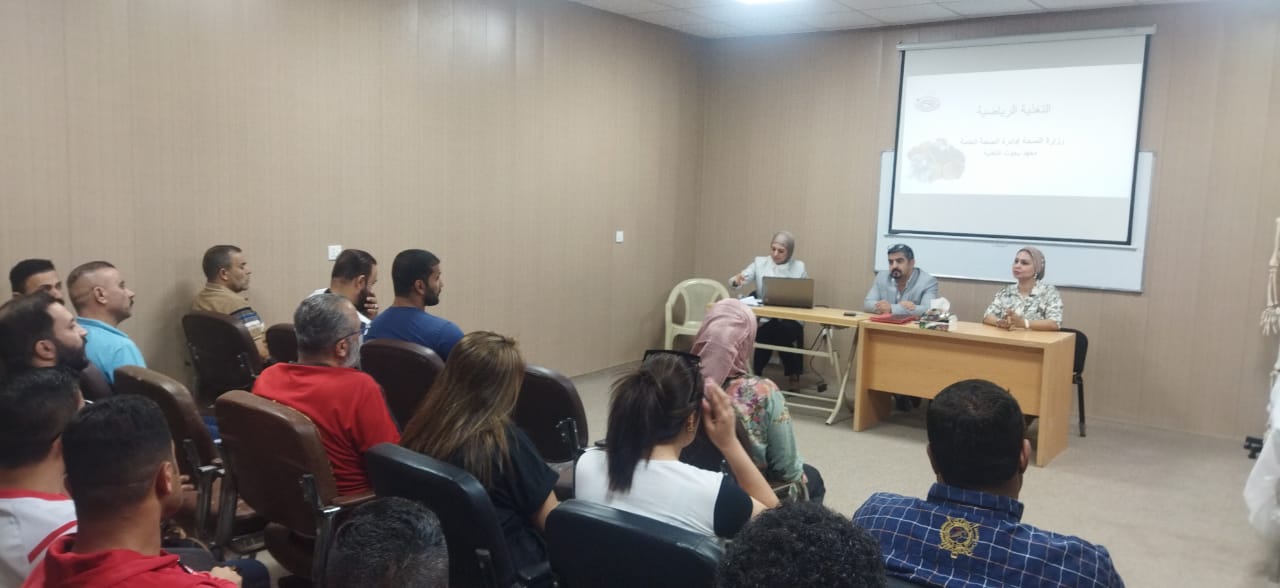The head of the Individual Games Branch, Asst. Prof. Dr. Abeer Dakhel Al-Sulami, and Asst. Prof. Dr. Ishraq Ghaleb Odeh, at the College of Physical Education and Sports Sciences for Girls, University of Baghdad, held a training course for employees of the Ministry of Youth and Sports/Department of Sports Medicine entitled (Basics of Nutrition for Athletes and the role of nutritional supplements).
The two teachers explained the difference between nutrition science and sports nutrition, as nutrition science is the science of studying the components of the necessary nutrients that the human body requires, while sports nutrition means food that provides the human body with general health, in addition to its high functional capacity and the body systems responsible for implementing. The physical activity requirements required for the competition in which the athlete will participate, indicating the most important nutrients that the athlete needs in his daily meals, such as carbohydrates, fats, proteins, vitamins, minerals, and water, as all of these nutrients perform specific functions that help maintain the body’s general health.
They also explained the dangers of indiscriminate use of nutritional supplements, causing side effects such as headaches, stomach aches, nosebleeds, hair loss, skin loss, heart palpitations, and others.
The two lecturers also touched on the general specifications of the meals that the athlete must eat before and after competition, and the similarities and differences between a nutritional supplement and a sports stimulant.
At the conclusion of the course, the Assistant Director of the Sports Medicine Department, Professor Alwan Muhammad Makki, awarded the two teaching staff with letters of thanks and appreciation in gratitude and appreciation for their sincere efforts made in cooperating with them to develop the skills and capabilities of the sports medicine members, wishing them success and more creativity and giving in the service of our beloved Iraq.
This training course achieves the sustainable development goals represented by the fourth goal: quality education and the seventeenth goal: establishing partnerships to achieve the goals.
